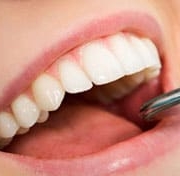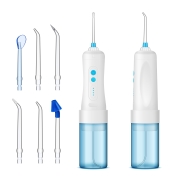Introduction to Quality Dental Care in Childhood
Quality dental care in childhood isn’t just about avoiding cavities; it’s central to overall development and well-being. Think of it as a building block for a lifetime of strong, healthy teeth and bodies. You see, when kids kick off life with good dental habits, they’re more likely to carry those into adulthood. This care encompasses daily brushing and flossing, but it’s more than that. It includes regular visits to the dentist, a balanced diet, and understanding the impact of oral health on the whole body. Ignoring these aspects can lead to issues with eating, speaking, self-confidence, and school performance. Plus, poor oral hygiene can invite unwanted guests like tooth decay or gum disease at an early age. In a nutshell, quality dental care sets the stage for kids’ health today and their habits tomorrow.

Connection Between Dental Health and Early Childhood Development
A child’s smile is more than just cute; it’s a window into their well-being. The growth of baby teeth and oral care habits set the stage for future oral health which, believe it or not, impacts a kid’s overall development. When dental issues are ignored in toddlers, they can face challenges with nutrition, speech development, and self-confidence. Nutrition is key for tots; if it hurts to chew, they might not get all the nutrients they need. Then there’s speech – learning to talk clearly hinges on how teeth are doing their job. And don’t forget about confidence; youngsters with healthy teeth tend to smile more and socialize without holding back. So, you see, keeping those tiny teeth in tip-top shape is more than just brushing; it’s about nurturing their growth in every single way.
Key Components of Quality Dental Care for Young Children
Quality dental care in early childhood lays a rock-solid foundation for a bright smile and overall health. It goes beyond just brushing. First off, regular check-ups with a kid-friendly dentist make sure those tiny teeth are growing just right. This pro will catch any sneaky cavities or issues early on, steering clear of bigger problems down the road. Next up, good habits start early. It means teaching tots the ropes of brushing and flossing—the right way. It’s not just about doing it; it’s mastering how to do it without missing a spot. Additionally, diet plays a hefty role. Sugary snacks? Not on the watch of quality dental care. It’s all about balance, with foods that strengthen teeth and keep them in fighting form. Lastly, if things get a bit crooked or crowded in there, early orthodontic guidance can step in and guide those pearly whites into place, dodging issues in the future. All these parts working together makes sure those little chompers stay healthy and ready to flash a winning smile.
How Quality Dental Care Prevents Future Dental Issues
Quality dental care in childhood sets the stage for a lifetime of healthy teeth. Consistent check-ups catch problems early, meaning less pain, fewer treatments, and cost savings down the line. Kids who learn the importance of brushing and flossing become adults with fewer cavities and gum disease. This preventive approach reduces the risk of needing more serious procedures like root canals or extractions later on. It’s not just about saving money—it’s about saving your child from avoidable dental pain and building habits that ensure a healthy smile for years to come.
The Role of Pediatric Dentists in Early Dental Care
Pediatric dentists are like knights in shining armor for your kid’s chompers. They have special training to deal with the tiny teeth of kids from infancy through their teen years. These dental warriors know how the teeth grow and what troubles might pop up along the way. They’re also pros at making visits less scary by creating a friendly and inviting atmosphere.
During check-ups, pediatric dentists can give you the lowdown on proper brushing and flossing techniques to keep your child’s smile bright and healthy. They’re big on prevention, aiming to nix cavities and other dental boo-boos before they start. Plus, they’re savvy about habits like thumb-sucking and can offer tips to cut it out.
If a child’s mouth is a battleground against plaque and cavities, consider pediatric dentists the strategists who help fortify it. They keep an eye on how teeth are lining up and can spot early if braces might be needed down the road. This helps make sure that teething troubles won’t throw a wrench in your kid’s ability to munch, talk, and flash a camera-ready grin.
So, don’t dodge those dental visits. Regular check-ins with a pediatric dentist arm kids with a strong defense against dental disasters, playing a massive part in the epic quest for a life-long, top-notch smile.
Dental Care Tips for Infants and Toddlers
Starting good dental habits early is key to healthy teeth for life. For infants, clean their gums with a soft, damp cloth daily even before the first tooth shows up. Once teeth appear, brush gently with an infant toothbrush and a tiny smear of fluoride toothpaste no bigger than a grain of rice. For toddlers, use a pea-sized amount of toothpaste and guide them to brush all surfaces. Teach them not to swallow the paste and to rinse well. Regular dental visits should start by their first birthday. This ensures any issues are caught early and gets them comfortable with the dentist. Remember, no bottles at bedtime to prevent tooth decay, and encourage drinking water over sugary drinks. Set the stage for a lifetime of bright smiles.
Incorporating Dental Education into Early Childcare Programs
Dental health might seem like a grown-up concern but it’s vital to start young. Introducing kids to the nitty-gritty of dental care through their childcare programs shapes their lifelong habits. We’re talking brushing, flossing, and understanding why that sugary snack might cause a toothache. By weaving in fun activities and lessons on oral hygiene, children learn early that taking care of their teeth is crucial. It’s more than just avoiding cavities; it’s about sparking positive attitudes toward health that stick with them as they grow. When childcare centers include dental education in their curriculum, they’re setting the stage for healthy smiles for years to come.
Addressing the Challenges to Quality Dental Care Access
Access to quality dental care isn’t always easy. It’s a tough road for many families, especially those living in rural areas or for those with tight budgets. Places where dentists are few, appointments can be as rare as hen’s teeth. And when money’s tight, dental care can seem like a luxury, even though it’s anything but. Cost is a major barricade – when the choice is between filling a cavity and filling a fridge, it’s clear why teeth often come second. But it’s not just about the money. Some folks simply don’t realize how vital early dental care is for kiddos. Tar-like misinformation gums up the truth – that every child’s chompers need checking, cleaning, and sometimes fixing, right from the get-go. Fluoride treatments, sealants, and just plain old teaching kids to brush – all this can steer them clear of tooth troubles later. So parents, caregivers, we’ve got a job to do. Let’s educate, let’s prioritize, and let’s find ways to bridge the gaps in dental care access because every kid deserves a healthy smile to light up their path to growth.
The Impact of Diet on Dental Health in Early Childhood
What young ones munch on directly affects their chompers. Sugary snacks? They’re bad news for tiny teeth. They bring in the cavity gang. Think fresh fruits, veggies, and foods full of calcium instead. These goodies make teeth tough against decay. Don’t forget, sticky and hard snacks are also trouble. They can break teeth or stick around, causing more damage. To keep tiny smiles bright, it’s simple: choose what’s best for their teeth and overall health.
Conclusion: Why Early Dental Care Is an Investment in Your Child’s Future
Good dental habits built in childhood lay the groundwork for a lifetime of healthy smiles. Think of it this way—setting the stage early with quality dental care becomes an investment, not just in your child’s pearly whites, but their overall development. Kids with healthy teeth chew food easily, learn to speak clearly, and smile with confidence. Plus, teaching them to brush and floss regularly can prevent painful cavities and nasty toothaches, meaning fewer school days missed and more time for learning and growing. That’s a worthy payoff, wouldn’t you say? Prioritizing your child’s dental health today can save on future dental bills too. It’s clear as daylight—keeping those tiny teeth in tip-top shape is more than just a good habit; it’s a smart choice for their future.











